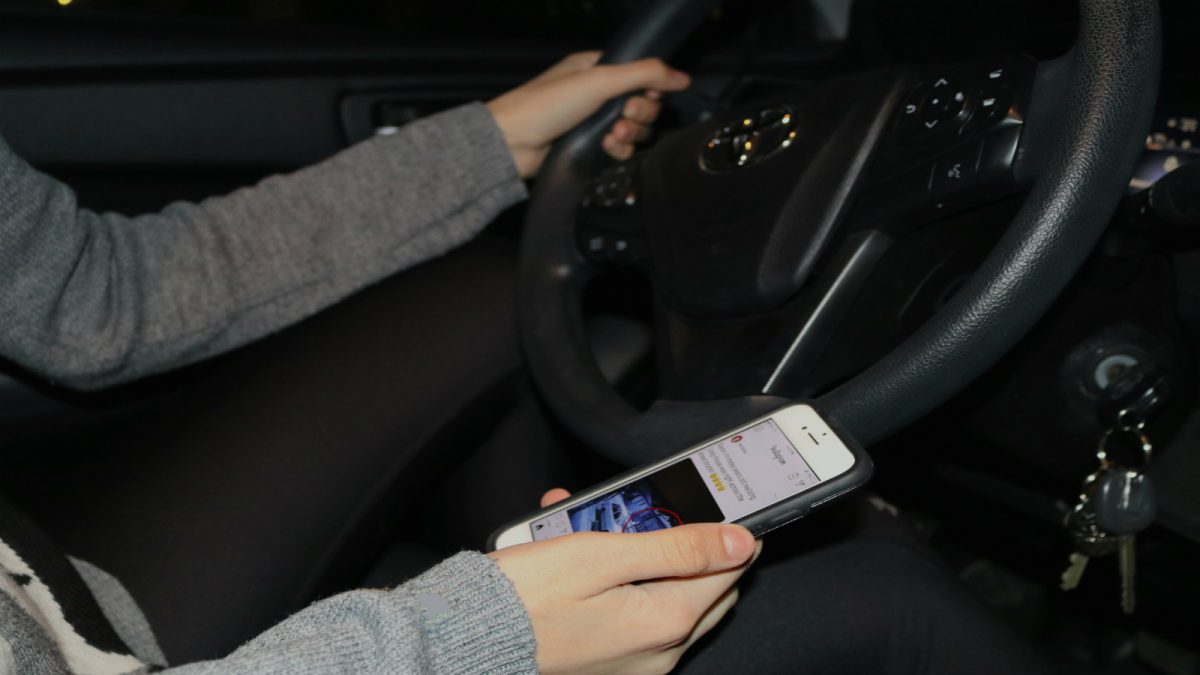If you enjoy taking a video of your ride with music in the background, you probably should think twice before picking up your phone while driving in the new year.
Starting Jan. 1, tougher distracted driving laws will be in force Ontario with stiffer penalties.
The OPP says that, in 2016, distracted driving caused more fatal accidents than any other factor and the numbers have doubled since 2000. Distracted driving continues to be the leading cause of accidents in the province.
According to the Ontario government website, distracted driving is using your phone to talk, text, check maps or choose a playlist while behind the wheel.
Other activities such as eating, reading or typing a destination into a GPS while driving are also considered dangerous by the province.
Ontario drivers can use a hands-free device connected to Bluetooth, but only to turn it on and off. A mounted device such as a GPS can be used as well as long as it’s secure and not moving.
Those caught breaking the law can expect to face hefty fines.
Drivers with A to G licences can face a fine up to $1,000, receive three demerit points and a three-day driver’s licence suspension for a first conviction.
If the driver is convicted a second time within five years of the first, the fine rises to a maximum of $2,000, six demerit points and week-long suspension.
On their third conviction within five years, it’s $3,000, six demerits and spend a month-long licence suspension.
Novice drivers, including those who have a G1, G2, M1 or M2 licence, who are convicted, won’t get any demerit points but they will pay the same fines as A to G drivers and they will face a 30-day licence suspension for first conviction, 90 days for a second conviction and will have their licence cancelled on their third conviction.
To avoid distracted driving, the province suggests:
- Turn off your phone or switch it to silent mode before you get in the car. Put it in the glove compartment (lock it, if you have to) or in a bag on the back seat.
- Before you leave the house, record an outgoing message that tells callers you’re driving and you’ll get back to them when you’re off the road. Some apps can block incoming calls and texts, or send automatic replies to people trying to call or text you
- Ask a passenger to take a call or respond to a text for you. If you must respond, or have to make a call or send a text, carefully pull over to a safe area
- Silence notifications that tempt you to check your phone




